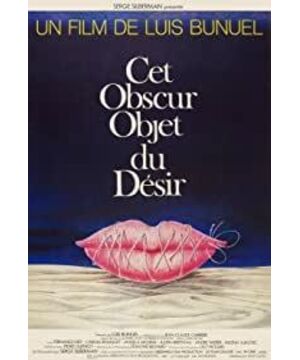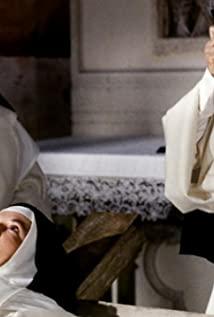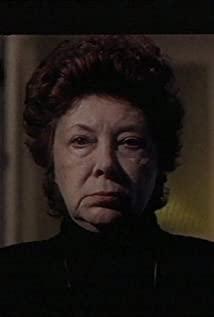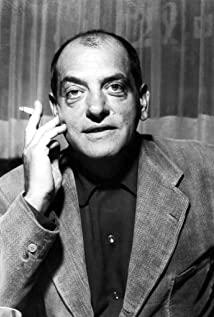The film seems to explain the truth that "love is impossible", because what men and women chase after each other is their own projections, which do not exist in the world, but only resemblances. Bai Yueguang becomes white and flawless because it is far away, and the magpie bridge will become a good story because it is difficult to build. Love looks for a substitute for a projectile. If you look carefully, you will find that the object is blurred, so the fire requires distance and haziness. In other words, distance and hazy fuel desire. As the saying goes, "a wife is not as good as a concubine, a concubine is not as good as stealing, and stealing is not as good as not stealing", because the proximity will make the projectile lose the best developing distance, and the desire is always strongest in the out-of-reach places.
There is no real beauty, only hazy beauty. If you use a magnifying glass to appreciate a painting, you will only see full particles, and beauty lies in the process of viewing external objects that stimulates your heart.
Every fluctuation of the relationship between Mathieu and Conchita brings about a change in Conchita's form. The director uses two actors to play one person to express this change, which is a symbol of mood changes. From Mathieu's point of view, these two states are the differences he has experienced. Conchita with a cold attitude is full of temptation and rejection, and Conchita with a game attitude is overindulgent, which makes Mathieu at a loss. She was like a city with its gates half-closed, but Mathieu couldn't capture it. There were traps inside the city walls. When she was defeated, the beauty waved to him again, and when she was about to succeed, she was slapped again. Mathieu is helpless in love, because his inner complex is ignited by the fire of love and loses his mind.
People always unconsciously like "a certain type" of people. These types are the residues left by the stage of individual desire generation, such as a look, a pair of slender hands, buttocks, breast enhancement, stockings. These fetishes seek clues to these desires, and Mathieu is drawn to Conchita's tender hands when he first meets Conchita in the film. Another attraction of Mathieu may be that Mathieu appears as a servant. The so-called charm of nurses and flight attendants also lies in the kind of child care they exude. In this case, the child in the heart of men Desire will be awakened, and throughout the film Mathieu's infatuation and innocence for Conchita is such a morbid child love. Mathieu's Oedipus complex is deeply attracted by Conchita's "can't get". This is the meaning that the film repeatedly expresses that Conchita's father has passed away, because the father represents a kind of prohibition, and the loss of Conchita's father symbolizes the loosening of the prohibition in Mathieu's heart. The second patriarchal injunction is a metaphor for the injunction given by the shop owner after Conchita finds a waiter job. During Mathieu's breakup, the store owner reprimanded Conchita for "not allowed to chat with customers", but Conchita broke free, she left the job and lifted the ban, Mathieu immediately took Conchita away, there is a kind of The psychological implications of competing with patriarchy. It is Conchita's disobedience to others that gives Mathieu an opportunity, but the paradox is that Conchita's disobedience is also directed at Mathieu. A friend living in her own room is a kind of mentality that breaks through the constraints, she is absolutely free. This makes Mathieu's desire for control and possessiveness suffer a serious setback. Conchita once said to Mathieu, "I'm not afraid of anyone, not even you." She used her childlike wildness to constantly frustrate Mathieu, although this made Mathieu almost mad, but the reason for this relationship The firmness may also be precisely because of Conchita's refusal. This situation of constantly defeating Mathieu has strengthened his inner Oedipus complex. In this case, the rational cousin is useless, and the irrational forces always prevail. When Mathieu couldn't undo Conchita's chastity pants, he cried in despair. Isn't this like a little boy's helplessness after being defeated?
Another place where the Oedipus complex is revealed is a "role inversion". Conchita has sex with a young male friend in Mathieu's presence when Mathieu's Golden House hide-and-seek project in Seville unfolds, and the beaten Mathieu's rivalry with the young man reveals Oeddi The inner dynamics of the Puth complex, this triangular situation becomes the realization of the desire for "son over dad", which is the same structure as Mathieu taking Conchita from the coffee shop owner. Mathieu fulfilled the "Son of Victory" in disguise through masochistic pain, something he had been doing before. He became his own enemy, and sadism and masochism formed an endless cycle, which is a typical neurotic state.
One characteristic of morbid love is that desire cannot be transferred. Conchita is the transference of the "primitive object", the "impossible object" in Mathieu's mind. Two months after Mathieu's breakup, he felt that he couldn't fall in love with anyone anymore, and that he couldn't live without her. This pursuit of morbid eroticism directly leads to the confusion of reality. The murder and violence on the streets are the shocks that Mathieu's inner world suffers. At the end of the film, a bomb exploded directly in front of the audience, and this inner vibration was directly transmitted to the audience.
The brilliant thing about "Hazy Desires" is that the audience is also caught in the hazy, we have absolutely no idea what this woman is thinking, and whether love is true or false. The beginning is very hazy. When the assistant accompanies Mathieu to check the room, there are bloody cushions, wet panties, and shoes. This scene will make people think about sex and conjecture that Conchita will be a virgin. Dedicated to someone else and Mathieu came too late. When you think Conchita is a cold and independent woman, you will always see a lot of deceit and play, and the two split images will appear alternately. The overall perspective of the film centers on Mathieu, and the audience's confusion is synchronized with Mathieu's.
The process of Mathieu's falling into a complex is shown by the passing of several symbols in the film. The first time was when Conchita's friend robbed him of 800 yuan for travel expenses, which symbolized that he was emotionally "hijacked" . The second time is when Mathieu bribes Conchita's mother, the mouse in the room is caught by mouse traps, which is a symbol of Mathieu being strangled by love. The third time was seeing a fly drowning in a wine glass in a restaurant after a breakup. This is the mental state of Mathieu who drowned in love. The fourth time Mathieu met the funeral procession in Seville, in this state of "dead heart", the whole emotional development was gradually deepened. The adventure in Seville opened up a new emotional involvement, and the emotional pattern became more intense after that, with the pair going into a masochistic mode. Conchita really fell in love when Mathieu was mad about her performance, her ultimate test for Mathieu seemed to be complete, she was confirmed for this crazy act, and she decided to "dedicate".
Falling in love, Mathieu immediately carries a sack, which is an important image of the film. There are two shots of passers-by carrying sacks in the film. The second time when the passers-by are carrying sacks is when Mathieu and Conchita are about to live together. The left side of the shot is Mathieu and Conchita, and the right side is The man with the sack is a symmetrical relationship, Mathieu is in the same psychological position as the passerby with the sack. After the train arrives at the station, there is a car that transports packages, and there is a shot of a whole car of sacks. Because the audience is in the same position as the train audience, the implication is that there are many of you in this emotional mode. This emotional pattern is not an individual phenomenon, but a class of phenomena.
The image of the sack reveals its inner meaning at the end of the film. These are women's clothes, symbolizing symbolic women, not an individual person, but a certain type of person. The sack is an "inner template" of desire. Among the many templates is a morbid template called the virgin complex. The virgin complex is an illusion of the little boy overcoming his father, because the first occupied position actually belongs to the father. In the Oedipus complex, the little boy finds his mother as soon as he is born. Has been possessed by his father, and his way of revenge is to find a virgin. But this is the child mentality, a weak man trying to pretend to be strong, a losing man obsessed with taking back the victory. In the film, the bloody skirt is sewn up to repair the damaged hymen. After breaking through the position of "first occupant", the desire will change. Mathieu is obsessed with his own complex, which was rejected by Kong Qi. Tower looked in her eyes, and she walked away in disappointment and contempt.
Conchita has an accurate intuition. She said that if she gave him her chastity, she would lose her love. The position of the first occupant is the ultimate temptation for Mathieu. Err.
But Conchita's wisdom did not control the development of her emotions. She did not realize how crazy her presumptuousness and temptation in love were, which was caused by her childish mentality. Conchita's mother is virtuous and doesn't care about her daughter. She used her daughter's beauty to defraud her of money. While in Seville, Mathieu gave a sum of money to a woman holding a piglet, an insight and irony into the relationship. The daughter did not gain the respect of her mother, and her father's binding force was also lacking, which led to Conchita's playfulness, and she did not have a sense of boundaries to restrain herself. Conchita said of her mother that she would say "look how cute she is" even when she realizes her daughter is going into prostitution. Such a mother also causes Conchita to dance erotically without shame, because she is naive and knows nothing of shame. When Mathieu drives away the guest, Conchita's way of thinking is that she hates Mathieu for dismissing the guest and it will get her fired. She believes that loyalty is to keep the virgin touch, but the loyalty she recognizes in her heart is actually the loyalty of the heart. She is a person who coexists with wisdom and childishness.
View more about That Obscure Object of Desire reviews











